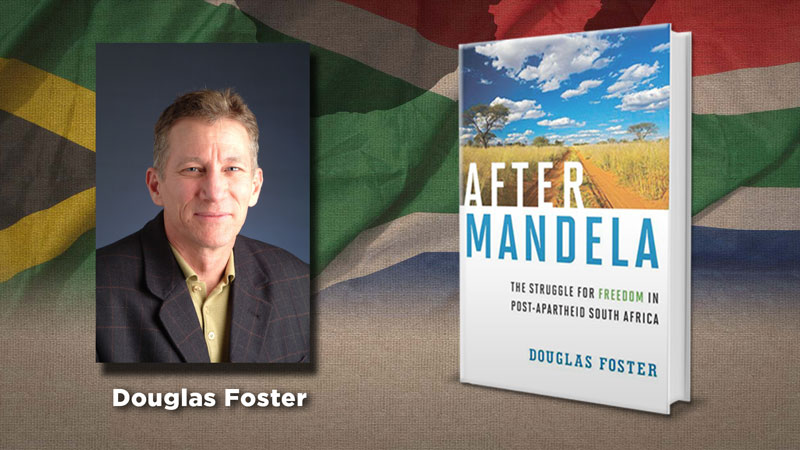Local Mandela Biographer: A Triumphant End To Triumphant Life
Biographer On Mandela's 'Triumphant Life'
By Steve Grzanich
(CBS) -- One of Nelson Mandela's biographers says the former South African President's death, peacefully surrounded by family after a long life full of historic achievements, is a triumphant end to a triumphant life.
"It's an emotional and sobering day, but I don't think it's really a sad day," says Douglas Foster, author of "After Mandela: The Struggle for Freedom in Post-Apartheid South Africa." Foster is also an associate professor at the Medill School of Journalism at Northwestern University.
"This is somebody who lived into his ninth decade. Somebody who began his life as a cow herd then traded that into a role as leader of a guerrilla movement, survived 27-years in prison as we all know, then became leader of a democratic South Africa then lived long enough to see partial achievement of that vision that he fought so hard for."
Foster says the story of the one-time political prisoner turned South African President and civil rights leaders is nothing short of remarkable. How will Mandela be remembered by history?
"As one of the great African leaders of all time. One of the world leaders of all time. Just from the standpoint of where he came from and where he ended up. On those kind of scores he will rank and be remembered for a long time."
RELATED: Full Interview With Douglas Foster
Foster lived in South Africa while working on his book and had unprecedented access to the Mandela family and archives. He says it's clear that history would have likely taken a different turn without Mandela.
"If he hadn't been available to become the first president, the transition to democracy would have been much shakier. He had an intuitive sense of what he needed to do to reassure whites without giving up on the ANC's historic commitment to translate political freedom into political gain for the black majority. I think it would have been difficult for anybody else in that collective to pull off what he pulled off."
"If you think about what might have happened if he had died in a rural area, had died during the struggle, had died in prison or died shortly after he came out of prison. People forget that it was four long years of very tough negotiations with the white regime that led to an agreement to have a peaceful election and peaceful transfer of power."
Foster says he was also struck by Mandela's actions after he left the presidency.
"Most political leaders strive so hard to make themselves indispensable to their countries and to their people. What we saw from Nelson Mandela since he stepped down as president in 1999 was a very conscious effort to make himself dispensable and to prepare his people, his country and the world for this day and that is pretty unusual."
While Mandela changed South Africa, Foster says he had a tremendous impact on people around the globe.
"The vision he articulated for creating a new kind of society at the southern tip of Africa, a society that is non-racial, non-sexist, non-homophobic and more egalitarian is a vision that is applicable to the rest of us."
How should South Africa and the rest of the world honor Mandela's memory?
"By recognizing that the snap judgments we make about people based on where they come from, the color of their skin, their class background, their language or expressions of their culture means something about whether we can build a society together."




